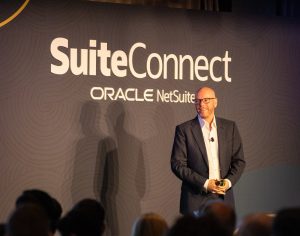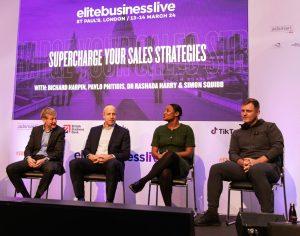Shortly after Ross Bailey, the founder of Appear Here, raised some seed capital in November 2012, he had to make a confession to his new investors. “When we got the funding originally, I was invited to go to New York. There was this really awkward conversation where they were telling me how we were going to go to all these clubs and I had to tell them that if I went with them I wasn’t going to be able to go out partying.” It wasn’t through a lack of desire – Bailey wasn’t yet 21, the legal drinking age in the US.
Now 22, Bailey is the youngest person in his company. But, despite his age, Bailey boasts a wealth of experience in the retail sector. His parents run a hairdressers in Bedfordshire, the same salon where they met decades ago. He has worked with entrepreneurs whose backgrounds were in the London 20 markets and he even ran his own pop- up. “It’s easy to join the dots when you look back on it all,” he says.
Bailey ticked many of the boxes of a young entrepreneur-in-the-making. “I always found school really boring; I hated maths, science, all of that sort of stuff. I loved art, I loved business – I loved anything where you were out and about doing things,” he recalls. He and his cousin began running a DJing venture when they were just 10. “Within a week we’d coded and put a website live. If anyone booked us as DJs, we’d print money-off vouchers. We also created this ten-page questionnaire where we’d sit down with the person after the event and quiz them about how they found the service,” he laughs.
Barely into secondary school, he continued to build his business acumen. “When I was 12, me and my school mate rented out a village hall without our parents knowing and we went to Sainsbury’s and bought as many drinks as we could buy and we sold tickets at school.” He continued to put on under-18 parties well into his teenage years, flogging premium packages to the “posh schools” which included a limo ride and alcohol-free champagne – which was ordered in bulk from Asda for £1 and then relabelled.
Bailey attended a fee-paying school himself until he was 16. “It wasn’t easy for my parents to send me to a school like that – they went without holidays and nice things because they sent me to that school.” Afterwards, he briefly went to sixth form at Walton High, an academy school in the local area. “I loved everything about sixth form,” says Bailey.
Still, it wasn’t enough to make him stay. “The club nights were making quite a lot of money and I realised I was learning more than sitting in business studies classes where essentially we were learning the same as we’d learned before.” He was also offered a place on a course Peter Jones, the telecoms entrepreneur and star of Dragons’ Den, was running as a precursor to the Peter Jones Enterprise Academy.
“He picked 20 of us to live in a hotel for six months and we were taught by him and other amazing entrepreneurs. One day, Mike Clare, who founded Dreams beds, turned up in a Rolls Royce Phantom that said ‘Dreams’ as the number plate and he was the teacher for the day. You weren’t being taught by [traditional] teachers, you were being taught by people who were out there doing business,” explains Bailey.

Whilst he was at the course run by Peter Jones, he was approached by an “old-school entrepreneur” who was a one- time owner of the Camden and Victoria markets in London. Bailey wasn’t keen. “I didn’t want to work for anyone. That was the one thing I was sure of – I wanted to go and do my own thing. But he said, ‘look, you’re going to get better experience coming to work with me than going into a big company or interning’, which is what other people from that course were doing. He said, ‘if you come to work at my office, your desk will be pushed up against mine and I’ll take you into every single meeting.’”
True to his word, Bailey accompanied his boss to all business engagements – though was routinely warned “not to say anything; just shut up and sit in the meeting”. It was a steep learning curve. At one point, the entrepreneur and his business partner were opening a new club in west London and were desperate to be featured in upmarket men’s magazine GQ. “The PR company that were being paid a fortune couldn’t get them in,” explains Bailey. “He said to me, ‘here’s the challenge: I’m going to give you 24 hours to get us into GQ. If you don’t get us into GQ, don’t come in tomorrow.’”
After pulling a few strings, he duly performed the task. When his boss came into work the next morning, Bailey had left the GQ website open at the correct page to display his masterpiece. Yet no praise was forthcoming. “He didn’t say anything. He didn’t say, ‘well done’, he didn’t say ‘thank you’, he didn’t say anything at all.” After a showdown, Bailey was given a dressing down. “He said: ‘I’ll give you a pat on the back if that’s why you do things. But if you want to do your own thing, you’ve got to remember no one gives me a pat on the back, no one’s going to give you a pat on the back. You do things because they’re the right thing to do and then you move on.’”
It was one of many valuable lessons, says Bailey. “There was definitely an atmosphere of if I didn’t do it I’d be gone. A lot of the time in the early days of a business where you’ve only got a certain runway it’s the same sort of thing: if you get this wrong, the company’s dead.”

After his stint with the plain-speaking entrepreneur ended, he went to work in Peter Jones’s offices temporarily, before enrolling at the School of Communication Arts. Much like the Peter Jones course, the programme was taught by practitioners, not theoreticians. Bailey describes the school’s dean, Marc Lewis, as a “nutter but in the best possible way”. An eccentric, Lewis would arrive for class every day “on a Segway, with a bulldog attached, wearing crazy multicoloured trousers” with “wacky hair like a nutty professor”. But Bailey’s respect is palpable. “He was just so inspiring and so incredible,” he says.
The admiration was mutual, it would appear. When he finished his course in 2012, Lewis gave Bailey the old broom cupboard to work on his ideas. “He moved out all of the caretaker’s stuff, put in a desk and gave me this tiny little room in this old church in Vauxhall and he let me work there every day,” says Bailey.
During that summer, he launched a shop called Rock and Rule in the Carnaby Street area, just in time for the Queen’s Diamond Jubilee, which sold limited edition t-shirts and apparel inspired by the Queen. But not everyone was thrilled by his entrepreneurial panache. “Within 48 hours of opening, we got a call from Buckingham Palace. It wasn’t the Queen wanting to buy a T-shirt, it was us being told we didn’t have the correct image rights and they were going to ban them. So we had to box up all the T-shirts and send them to Buckingham Palace,” he explains.
The minute the merchandise was banned, customer demand exploded. “Suddenly there was this huge excitement: there were these banned T-shirts and people were coming in doing everything they could to get hold of one.”
After the Jubilee, Rock & Rule closed its doors and Bailey reflected on the experience. “It had been a nightmare dealing with the landlord at the time but they weren’t as bad as some others had been; we had tried a number of different spaces,” he says. “The idea for Appear Here was based on the fact that there were all these empty shops and a big, archaic industry where everything’s been done the same for hundreds of years. But times are massively changing: leases have gone from 20 years in 1991 to five years now.”
His wasn’t the only one beginning to realise that times were changing. Five days after the shop closed, he received a call from the chief marketing officer of a large US sportswear brand who was looking for a space for the Olympics – in just a few weeks’ time. “I charged around town trying to find a space for them and managed to find a few spaces near the Olympic ground.”
The sportswear company’s experience cemented an idea Bailey first had while studying at the School of Communication Arts. He wanted to create an online marketplace where people could rent short-term space for pop-up shops, restaurants and other concepts. “There were all these little brands and people like us that wanted space and then you’ve got all these big international brands having the same problem. So whether you’re a little guy or a big guy, this is an issue. And then you’ve got all these landlords with empty space.”
Never one to waste time, the initial concept for Appear Here was formalised at the end of the summer. By November, Bailey had raised “£150,000 or £200,000” from Forward Ventures and was offered some free desk space in its offices. Having hired a freelance developer, the site went live in February 2013. As a handful of other people joined the fray, the Appear Here team realised they would have to put in the hours if they were not to join the graveyard of failed start-ups.
“All of the other start-ups would leave at 6 or 7 o’clock and we’d be there until much later. All the other companies that happened to be sharing desk space there were closed down, one by one. That made us realise how important this was and also that perhaps part of the reason we were working was because we were putting in the extra hours.”

And the concept does indeed appear to have struck a chord with investors, entrepreneurs and landlords alike. After a seed round of $1.9m (£1.2m) in November 2013, Appear Here recently raised $7.5m (£4.8m) in its series A. It now works with 200 landlords, including eight of the ten biggest landlords in the UK, and has helped brands including Google, Microsoft, Marc Jacobs, Net-a-Porter and Jamie Oliver to find temporary retail space. “I think the whole bloody cast of Made in Chelsea have now rented a shop with us,” laughs Bailey.
The company also netted a deal with Transport for London (TfL) in March last year, which will see it renting pop-up shops in some of the capital’s busiest tube stations. It is a little-known fact that TfL owns more than 1,000 retail properties at London Underground, rail and bus stations, as well as 1,200 arches under its railways. Most of these are occupied on a long-term basis but as leases expire, some space will now be reserved for pop-ups. Everyone’s a winner: commuters will gain access to a more diverse range of retailers and brands, and TfL will be able to reinvest the rental revenues back into its network.
It’s rather fortuitous that Appear Here began in the capital. London dwarfs any other city in the world when it comes to the amount of cash spent in its shops. “£14bn more is spent in London than New York,” says the entrepreneur. “We’ve got quite a strong competitor in the US but we’re a UK company that’s raised a little bit more money than them and I don’t think that’s very common – and we’re a bit younger than them. We’ve got a really good chance to become the best in the world at what we do and to become that de facto site for short-term retail.”
To help them do that, Appear Here has invested in some top-notch talent – it recently poached H&M’s head of menswear to become its head of operations and hired an advertising exec to look after the creative side of things. “We’re massively investing in the team and our service. We want to make sure we build this great marketplace, like Airbnb but for commercial property, with a service that’s comparable to someone like [boutique hotel company] Mr & Mrs Smith,” says Bailey.
The top-tier talent joining the ranks at Appear Here is testament to Bailey’s leadership skills, despite his tender years. After all, there is a clear difference between age and experience, as Bailey points out. “I’ve been working since I was 16, which means I’ve been working full-time in London for six years. I’ve got friends that have only recently left university so may only have a year or two’s work experience. Also, having worked for some of the people I’ve worked for, I had to grow up pretty damn quickly.” ![]()
Share via:


















































